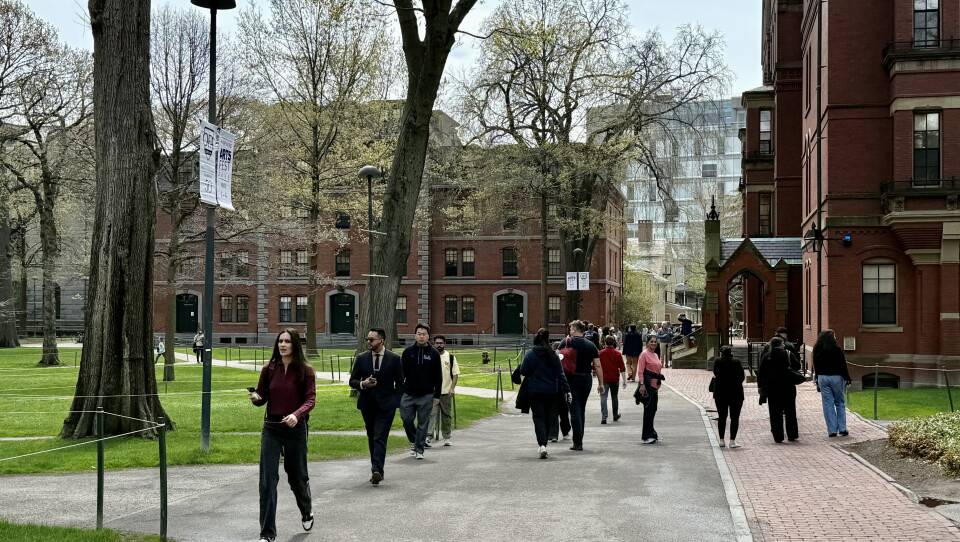Harvard is not ready to accept a deal with the Trump administration, according to sources familiar with internal conversations on the matter.
The federal government has cut research funding to numerous universities, launched investigations into those it accused of enabling antisemitic behavior, and demanded changes to school processes around race and gender. Columbia University, the University of Pennsylvania and Brown University all recently announced settlements with the federal government to restore funding and end investigations.
Last week, the New York Times reported that Harvard was considering a similar agreement, and was willing to pay up to $500 million. But Harvard President Alan Garber told some faculty leaders that there is no set deal, and that talks with the government have been “on-again, off-again,” sources told GBH News.
The Trump administration has accused Harvard of enabling antisemitism on campus and demanded the school take corrective actions, including sharing information about its foreign students and cracking down on protest activity.
Sources told GBH News that one sticking point with a deal is that Harvard doesn’t want to hand over disciplinary records for its foreign students to the Department of Homeland Security. Garber has also said he wants to resolve the feud with the White House through legal channels, rather than behind-the-scenes negotiations.
Over the past few months, several Harvard professors and alumni have urged Garber and other administrators not to negotiate with the Trump administration. They worry that direct involvement would limit universities’ freedom.
Under Brown’s deal announced last week, the university in Providence will provide admissions and hiring data and adopt the government’s definition of “male” and “female.”
Unlike Columbia, which agreed to pay more than $220 million to the U.S. Treasury, Brown will put the $50 million toward workforce programs in Rhode Island over the next decade. Brown said that lines up with the school’s mission to serve the local community.
President Donald Trump celebrated the deal in a post on social media platform Truth Social.
“Congratulations to Brown University on the settlement made with the United States Government,” he said. “There will be no more Anti-Semitism, or Anti-Christian, or Anti-Anything Else! Woke is officially DEAD at Brown. Thank you for your attention to this matter!”
Facing backlash, Brown President Christina Paxson defended the deal in a statement to the school’s community, saying it won’t compromise academic freedom or the school’s autonomy. Paxton said the agreement was “voluntary” and preserves professors’ ability to teach without government intrusion.
Jay Greene, a research fellow at The Heritage Foundation, told GBH News these unusual deals aren’t just about the money. The point, he said, is to get colleges to comply with federal law.
“The boards of trustees are legally responsible but they lack authority,” Greene said. “That’s because universities have developed a culture where the faculty have come to believe that they run the institution and they run it as a commune, but that’s not true.”
On Monday morning, the Knight First Amendment Institute at Columbia University published a critical analysis of these settlement agreements with the Trump administration. It also calls on other universities like Harvard to consider how much is at stake in their own institutions’ negotiations with the administration.
The institute says these settlements are “an astonishing transfer of autonomy and authority to the government — and not just to the government, but to an administration whose disdain for the values of the academy is demonstrated anew every day.”





